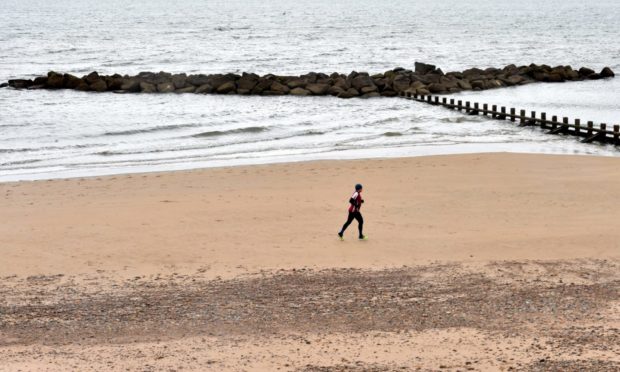We are at the height of lockdown. Trapped within the confines of our home and garden (if we are lucky enough to have one) our lives have been stripped back.
This is the greatest social upheaval since the Second World War. We know how much that changed society. There was social levelling as women took over traditionally male roles at home and as men from all levels of society fought alongside each other on the front lines abroad. An entire generation of children, my parents among them, were removed from their families and evacuated to the countryside. War brought out the best and worst in human nature.
So what effect will this epidemic have on our future lives? Research is revealing interesting insights into the behaviour we’ll see in a post-coronavirus country.
When the lockdown lifts, customers are unlikely to head to the Coylumbridge Hotel or use any other brand which treated its staff badly when the chips were down. This was a time when businesses revealed their true colours. Consumer research has identified a high expectation that companies fulfil their responsibilities as employers and their duty to the wider community during this time. There were those who did everything to protect their staff and those who didn’t. Studies of the last recession in 2008 suggest that strong brands recover nine times faster than the average company. Those who have behaved with moral integrity will reap the rewards in the months to come.
Research also shows that consumers understand the subtle difference between a business which trades as normal and one which tries to profit from the situation. That kind of sin will be remembered for far longer than the lockdown lasts. Our new heroes will be those like “body coach” Joe Wicks who broke up the drudgery of daily life in more than a million households every day. Millionaire Mr Wicks will have increased his personal wealth through this crisis but nobody cares. His classes are so good I’ve been wondering why I spend 30 minutes getting to and from the gym. An entire generation is now realising the benefits of doing more things online and at home.
I had reason to use the NHS recently and it was a breath of fresh air. The consultation with a nurse was via video call, saving me an hour of travel and the stress of finding a parking space. The nurse apologised for the inconvenience … What inconvenience? Surely this is better for patients and the planet. A follow-up appointment with the GP was over the phone. It took 10 minutes. If appointments were running late it wasn’t a problem; I could do the washing up while I waited. When life returns to normal we will be less tolerant of antiquated procedures which intrude too much on our precious time.
We’ll all invest more time and money in the latest technology. God help those who were making do with an old laptop, phone, or who were struggling with a slow internet speed. Coronavirus brought on an outbreak of video calls and, if you weren’t already using Zoom, WhatsApp or Houseparty then you had to skill up fast. There was the unfortunate boss who couldn’t switch off a filter and conducted an entire meeting as a potato. Power dressing is sooooo 2019. The post-Covid generation will put their devices at head height and carefully position themselves with an interesting backdrop to reveal their “creativity” and “intellect”.
Home working has forced thousands of organisations to shift their focus from timesheets to results. This is the time to shine if you were self-motivated and hard-working. Those who previously spent too much time chatting around the kettle have found that their poor performance is suddenly much more apparent. This is the culture shock that many managers needed to recognise their best staff and reduce the reassurance they felt by bums on seats in an office.
The lockdown will end. As we start to rebuild our lives, we will inevitably consider what parts we want back and what we don’t. Analysis of social media during the coronavirus outbreak suggests that we are dreaming of the great outdoors and getting back to nature. Four in five people want a new life in the country but only one in five make it happen. A couple of months locked inside will quickly change that statistic, especially now that a generation has seen how remote working could make it possible. We have quickly adapted our lives, moved online and we may well demand more flexibility from everyone from our employers to our GP.
One day, we will again wave our children goodbye as they get on the school bus but this time it will be different. Instead of getting into a gas-guzzler to crawl to work, we will take our cup of tea and walk a few steps to our home-office where we will join the team meeting by video call. We will share images of the cat peeping over the top of our laptop with our enlightened manager, who will laugh and thank us for the great report we delivered yesterday. We will hold our families close, grateful that we made it through, but safe in the knowledge that educating the kids is now someone else’s nightmare.
Eleanor Bradford is a former BBC Scotland health correspondent who now works in communications in the education sector

